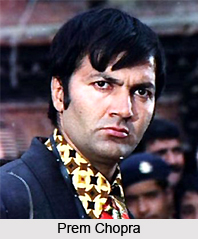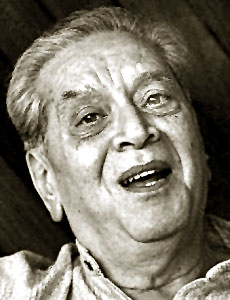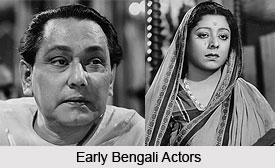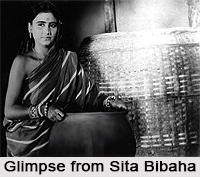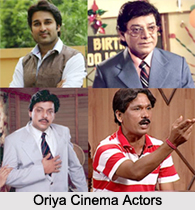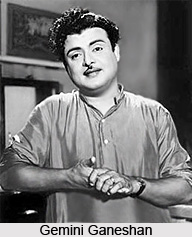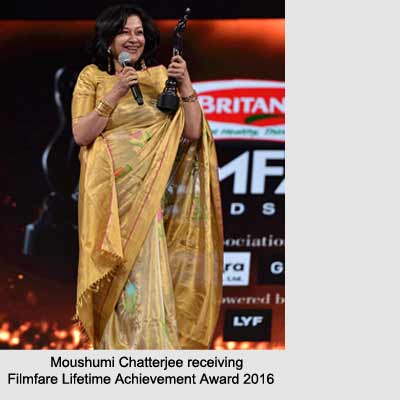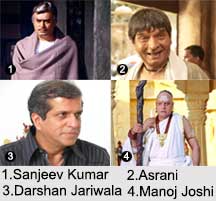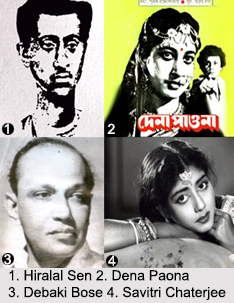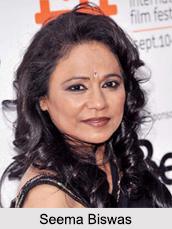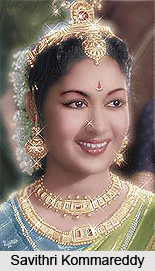Often referred to as the `Man with the Golden Voice,` Mukesh wooed the hearts of many with his melancholic songs. He was inimitable in his forte, so much so that after his death, Raj Kapoor stated, "…When he died…I felt, there goes my breath, there goes my soul. I know what went away from me. There was a void, a vacuum..." In his singing career Mukesh won several accolades for his mellifluous voice. He achieved awards for his great songs and these became the identity of this great music personality. However he was also known for his pleasant personality and that explains his rapport with a number of people in the Indian film industry.
Mukesh owes his entry into the Hindi film industry to Motilal, an actor. He was discovered by the latter at his elder sister, Ram Pyari`s, wedding. Motilal was so impressed that he invited Mukesh to stay at his residence in Mumbai. He also engaged the legendary Pandit Jagannath Prasad to train Mukesh and hone his voice. The legendary singer received encouragement and guidance from for films during his initial years. Mukesh got his break as a playback singer in 1945 in the film `Pehli Nazar` for the song `Dil Jalta Hai to Jalne De`. Prior to this he also starred in a film, Nirdosh (1941) but the film did not do well at the box office.
This song was an instant hit and Mukesh was noticed by stalwarts like Anil Biswas who gave him another major break that proved to be one of the vital stages of Mukesh`s singing career. With the progression of time people came to recognise Mukesh`s voice and it became an icon for the sad songs. His voice had a distinct appeal that was admired by the music directors, composers and his fans as well. The great achievement of Mukesh was that he was the only person who worked with the great contemporary actors, music directors, singers and co singers of the industry. Mukesh was successful in earning his fame and securing a revered place in the hearts of the people he worked with.
Peerless voice was not the only reason why Mukesh was loved by his contemporaries. He was a good human being as well. He was instrumental in introducing Lata Mangeshkar. There was a bond between the two. She considered him as a great artiste, a great soul and a very dear brother. The two greats, shared many memorable songs together. Besides her, actors like, Dilip Kumar, openly admitted their admiration for the singer. In films like Andaz, Madhumati, Mela, etc Mukesh sang for Dilip Kumar. Songs like, "Suhana Safar," "Hum aaj kahin dil kho baithe", "Tu kahe agar jeevan bhar", "Toote na dil toote na", "Jhoom jhoom ke naacho aaj" were runaway hits.
The pensive `Mr. Bharat` Manoj Kumar used Mukesh`s voice in most of his films. `Tum bin jeevan kaise beeta poocho mere dil se` sings the forlorn Manoj to the reluctant sanyasin Sadhana in `Anita`. There is the wonderfully hummable `Ek pyar ka naghma hai` from the painfully realistic `Shor`. And there are flirtatious songs from `Sanyasi` where a chaste Manoj resists the gorgeous temptress Hema Malini. The great actor Dev Anand was recognised with the voice of Mukesh in his films. His songs used to be totally inseparable for not only the senior actors but also for later actors like Rajesh Khanna, Amitabh Bachchan and many others. After all who can forget melodious numbers like `Kahin Dur Jab,` `Maine tere liye hi saat rang ke,` `Kabhi Kabhie Mere Dil Mein` or `Main Har Ek Pal Ka Shair Hoon`!
Mukesh`s personal achievement lies in the relationships he cherished during his singing career. In his successful career he came across famous music directors like Kalyanji-Anandji, music composer Sardar Malik, music director Anil Biswas, Roshan Lal, producer Motilal, actors like Raj Kapoor, Manoj Kumar, O. P. Nayyar, Shankar- Jaikishan, Shailendra and Hasrat Jaipuri. The duo of O.P Nayyar and Mukesh was proved to be the milestone in the career of both. For Kalyanji--Anandji, Mukesh sang in a record breaking 57 films. Laxmikant Pyarelal, used Mukesh in 45 films including their first film `Parasmani` and achieved great success. The last song Mukesh sang was `Chanchal, Sheetal, Nirmal Komal` for Laxmikant Pyarelal in 1976.
Together with Lata Mangeshkar and Mohammed Rafi, he completed the trinity of silver voices who enriched and enraptured through the Golden Era of Hindi cinema playback. Mukesh worked with some recent music directors like Laxmikant Pyarelal, Kalyanji Anandji, Salil Choudhary, Usha Khanna, Khaiyyam, R.D. Burman, and S.D. Burman and sang countless numbers. His work with the lyricist Sahir Ludhianvi and musician Khaiyyam created magic in the film `Kabhi Kabhie`.
Mukesh received awards for his dedication and innumerable hit songs he gifted to the Bollywood film industry. In 1974, Mukesh received National Film Award for Best Male Playback Singer for the song `Kain baar yoon bhi dekhaa hai` from Rajnigandha. He also received Filmfare Awards for the songs `Sab Kuch Seekha` in the movie `Anari` (1959), `Sabse bada naadan wahi hai` in `Pehchaan` (1970), `Jai Bolo` in `Be Imaan` (1972) and the title song of `Kabhie Kabhie` (1976). Many songs of Mukesh were released in 1977 and 1978 after his demise. The songs of the films like `Dharam Veer`, `Amar Akbar Anthony`, `Khel Khiladi Ka`, `Darinda`, and `Chandi Sona`, `Aahuti`, `Paramatma`, `Tumhari Kasam`, and `Satyam Shivam Sundaram`. Innumerable songs from the movies like `Shaitan Mujarim`, `Premika`, `Patthar Se Takkar` (1980), `Sanjh Ki Bela`, `Maila Anchal` (1981), `Aarohi` (1982), `Chor Mandali` (1983), `Nirlaj` (1985), `Love and God` (1986), `Shubh Chintak` (1989), and his last known release of `Chand Grahan` (1997).
On several occasions, Mukesh won Filmfare Awards for his songs. A list of his awards is:
| Year | Songs | Year | Songs |
| 1959 | Sab Kuchh Seekha Hamne (Anar) | 1972 | Jai Bolo Beiman Ki Jai Bolo (Be-Imaan) |
| 1970 | Sabse Bada Nadan Wahi Hai (Pehchan) | 1976 | Kabhie Kabhie Mere Dil Mein" (Kabhie Kabhie) |








